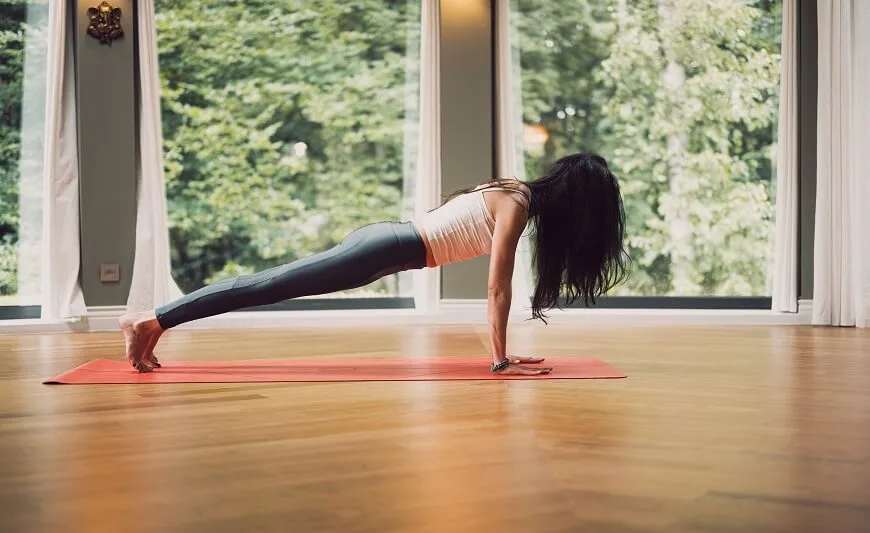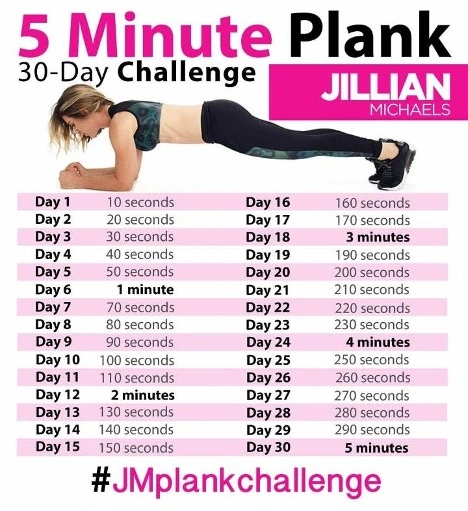
I can plank for five minutes – and I am willing to wager that you can too. If five minutes sounds daunting, I get it. It took me, oh I don’t know, about 3 years to get up the nerve to try Jillian Michaels’ 5 Minute Plank 30-day Challenge. Why did it take so long? I am not proud of this, but truthfully, it just seemed too hard.
Are we not created with the mental and physical capabilities to overcome challenges - to do hard things? Why are we so resistant to challenges? I don’t know that I am capable of answering this question entirely, but I know that the feeling of success after completing something hard is a feeling that cannot be substituted. My curiosity was piqued.
I Googled “psychological benefits of accomplishing hard things”. The article that first grabbed my attention was from Psychology Today. It’s a good quick read (you can find it here). I found this quote to be particularly interesting.
“The human brain is wired to favor routine over novelty, even if that routine is unhealthy.”
Got it, our brain doesn’t seek challenges. But then, why would it? Physics teaches us that a state of equilibrium is constantly sought.
But there must be something more. That feeling after completing a challenge is undeniably positive. It’s why runners complete marathons. It’s not the physical act of running that compels them, it is the battle to achieve the goal and the post run sense of accomplishment. The “runner’s high” or the increase in endorphin levels are compelling too. (This is not me speaking from experience, as I am not a runner, but a pretty amazing runner I know explained this to me.)
For validation, I found a legitimate article on Medical News Today about endorphins (read the full article here).
“Regular exercise, stress reduction, and giving to others are well-known “feel-good” activities that can help a person live a healthier and happier life.”
So endorphins are good, they increase our overall well-being…but our brain seeks routine.
I believe that we can make a happier life for ourselves if we seek out endorphin releasing activities. Ah, but that requires mental toughness.
Back to Google, where I found the Forbes list of 13 Habits Of Mentally Tough People (check it out in its entirety here) What a great list! My favorites:
#1 Love a good challenge
#8 Know that fear only leads to regret
#13 Don’t let haters get you down
The last line of the article sums it all up:
“Mental toughness is not an innate quality bestowed upon a select few. It can be achieved and enjoyed by all but requires intentional practice.”
Wait, did you catch that? Mental toughness requires “intentional practice”. Which means, mental toughness can be developed. Intentional practice is also known as a habit. A habit is part of a routine. Remember the first quote from Psychology Today? The brain favors routine!
Jillian Michaels just might be the epitome of mental toughness. My first impression was based upon watching her on The Biggest Loser. Her hard core, no nonsense approach to training gave me the impression that she was mean. As the show progressed, it became evident that there was much more to Jillian than her coaching style indicated. While she pushed her team members, she was quick to catch them before they fell. She was not mean, she was teaching mental toughness. Ultimately, Jillian’s results spoke for themselves.
Over the years, I have come to adore Jillian. I have completed several of her workout programs and appreciate that they are highly efficient both in time and results. Her books are logical, and her Podcast is one of my favorites.
While browsing on Pinterest I found the Jillian Michaels 5 Minute Plank 30-Day Challenge.

I pinned it, but like many of my pins, it sat quietly on a board until just a few months ago. My schedule was varied, and scheduling time to workout became more of a dream than a reality. Recognizing that I needed a workout challenge, something to push me, a goal that was attainable. That’s when I remembered this challenge. The challenge was perfect for me because it took a maximum of five minutes per day, was measurable, and lasted a mere 30 days.
It was hard.
It is generally accepted that holding a plank for two minutes puts one in the “fit” category. I was excited to reach the two-minute mark, and every day thereafter fed the desire to complete the full five minutes. There were plenty of moments of self-doubt, but A LOT of positive self-talk got me through. More often than not, I was shaking when I finished my daily challenge. Thank goodness for those endorphins!
If you decide to take on this challenge, I have a few recommendations:
Location – Pick a specific place where you will plank each day.
Routine – Identify a specific time in your day when you will plank. I chose first thing in the morning right after brushing my teeth and just before a shower. Adding it to my morning routine made it easier to complete because I didn’t have to “find time” each day. It was already part of my day.
Distraction – I highly recommend thinking about how you will spend this time. A minute, heck even five goes by pretty quickly on social media, but when you are in a static hold, especially at the end, you notice every second. I found YouTube videos to be particularly helpful because they forced my brain to think about something else.
I was proud of myself after the completing this challenge. Take the 5 Minute Plank 30-Day Challenge, or don’t, just know that it’s ok to do hard things. We should do hard things. Choose to do something hard, when you do, please let me know what you choose, and how you feel when you accomplish it.


